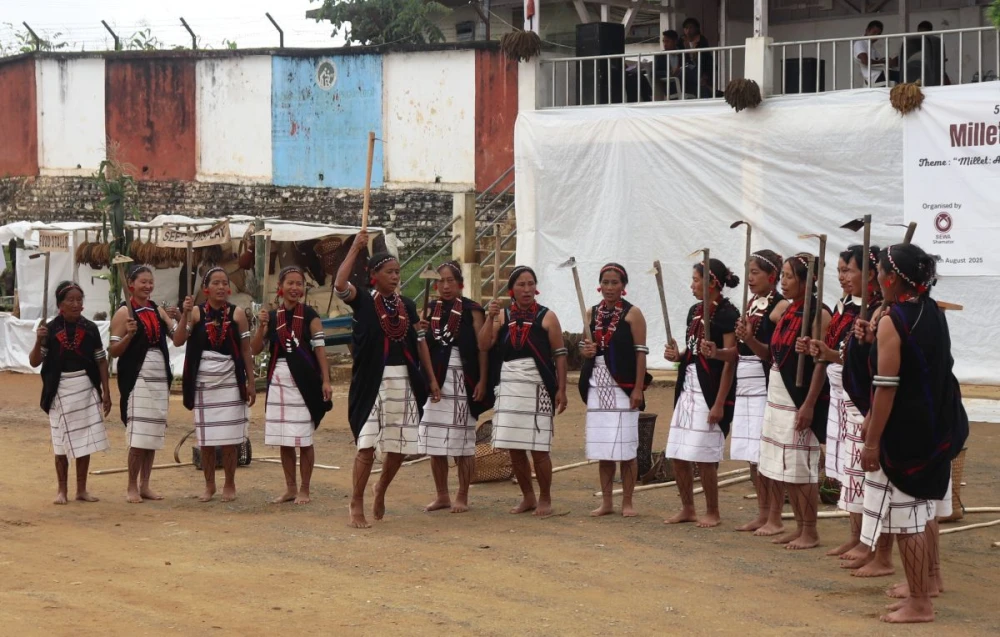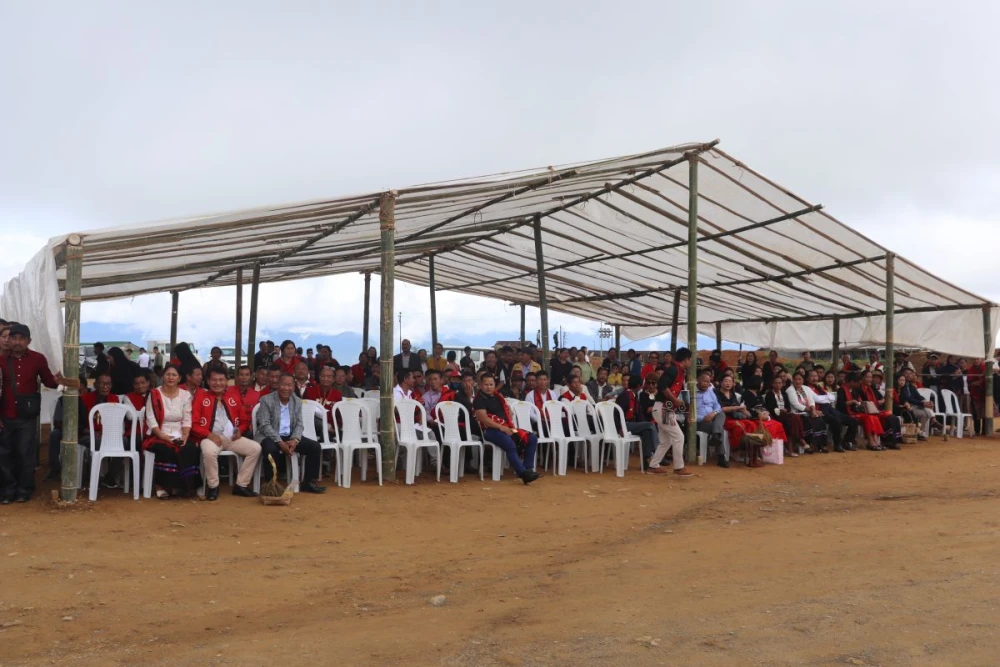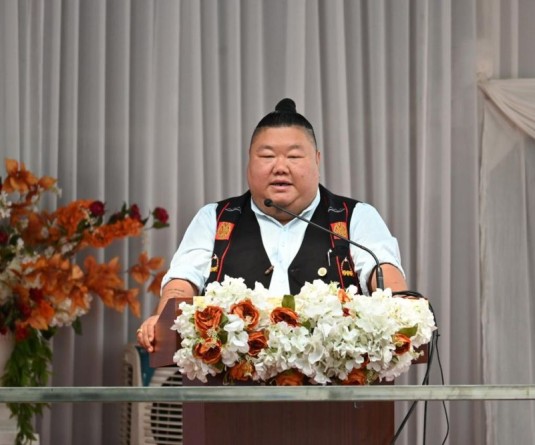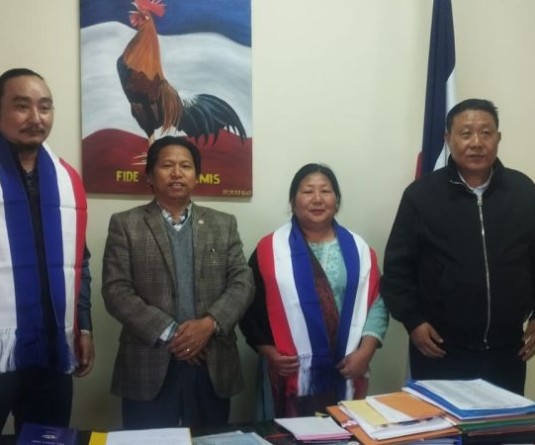MLA & Advisor Keoshu Yimkhiung visiting the seed exhibition during the 5th Millet festival held at Shamator town on August 6.
Shamator, August 7 (MExN): The 5th Millet Festival was commemorated under the theme “Millet: Ancient Grain, Enduring Lives” in Shamator town on August 6.
Organised by the Self Employed Women’s Association (SEWA) Shamator in collaboration with the North East Network (NEN) and Millet Network of India (MINI), the Festival brought together over 300 participants from six villages and eleven wards from Shamator town, “reflecting the growing interest in reviving traditional, and climate resilient crops.”
Since 2021, the Millet festival has evolved into a grassroots movement for food sovereignty, sustainable agriculture, preservation of indigenous seeds, and community resilience grounded in ancestral wisdom, stated a press release from NEN.

Risola Jan, Agriculture Officer, Department of Agriculture has noted that Millet is more than just a crop; it is a symbol of survival, resilience, and community. “Millet is adaptable to harsh climate, poor soil and requires minimal water; it is both, climate resilient and nutritionally rich, a crop that gives more than it takes, the “grain of the future” the officer added.
MLA urges reclaiming sustainable farming
The 5th Millet Festival was graced by Keoshu Yimkhiung, MLA & Advisor to the Department of Youth Resources and Sports, as the special guest.
In his address, he commended the efforts of SEWA, NEN Nagaland, and the wider community for taking active steps in restoring millet’s relevance in local agricultural practices.
He highlighted the two-decade decline in millet farming and shared folk stories illustrating changes in traditional agriculture. Millet was once revered as the 'mother of all crops, symbolizing sustenance, culture, and resilience. 'Millet harvests were deeply celebrated in the Yimkhiung community. While awareness of millet’s importance has grown, he urged the community to take ownership of millet's revival without relying on external support.

The MLA also encouraged reclaiming sustainable farming traditions and reviving other endangered crops like indigenous cotton.
Chubatemjen, NCS, Deputy Commissioner of Shamator, emphasised the cultural and ecological significance of preserving traditional crops such as millet. He encourages communities to integrate sustainable farming practices with cultural heritage, promoting intergenerational knowledge transfer.
Esther, a member of the Shamator Millet Sisters, shared her experience and commended SEWA Shamator and the Millet Sisters for their efforts in identifying and reviving traditional, long-lasting seed varieties, with support from NEN and the Millet Network of India. She emphasised millet’s vital role in ensuring food security, especially during times of scarcity, and urged government departments, village councils, and farmers to extend their support to millet revival initiatives.
Other highlights of the festival include a farmer’s market, seeds and food exhibitions, a millet-eating competition, and cultural performances by the Thopün Troupe and Shamator Town Choir. The celebration provided a platform for community engagement, knowledge sharing, and celebration of agro-biodiversity, bringing people together from diverse backgrounds.





